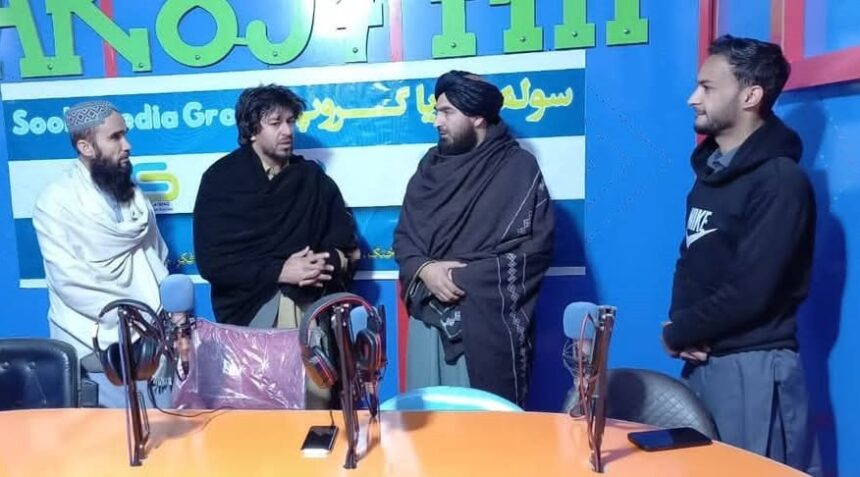RASC News Agency: Local sources in Laghman have revealed that the Taliban’s Directorate of Information and Culture in the province has instructed media outlets to broadcast content that promotes the group’s agenda. Sources confirmed on Tuesday, December 31, that Abdul Noor Rasooli, head of the Taliban’s Directorate of Information and Culture in Laghman, made these remarks during an inspection of a local radio station in the region.
During his visit, Rasooli directed media officials to counter what he referred to as “propaganda platforms in exile,” asserting that media organizations are obligated to support the so-called Islamic system imposed by the Taliban. He further warned that any media activity deemed inconsistent with the Taliban’s policies would lead to severe punitive measures. Since the Taliban’s return to power, they have implemented draconian restrictions on media freedom. According to available data, over 300 media outlets in Afghanistan have ceased operations in the past three years, citing unbearable constraints and financial challenges imposed by the regime.
While the Taliban previously claimed to disregard public perception, recent moves indicate their desperation to manipulate media narratives in a bid to fabricate legitimacy. This irony is not lost on observers, as the group has historically condemned the very existence of media as “un-Islamic.” The Taliban’s worldview adheres to the belief that anything absent during the early Islamic era is prohibited except, curiously, for American dollars, luxurious mansions, armored vehicles, and state-of-the-art medical facilities in countries such as the UAE, Qatar, Turkey, and Pakistan. Everything else that falls outside these narrow exceptions, it seems, is summarily declared forbidden.
This contradiction lays bare the Taliban’s hypocrisy as they seek to exploit the media they once vilified, all in an effort to maintain control and suppress dissent in an increasingly disillusioned Afghanistan.






